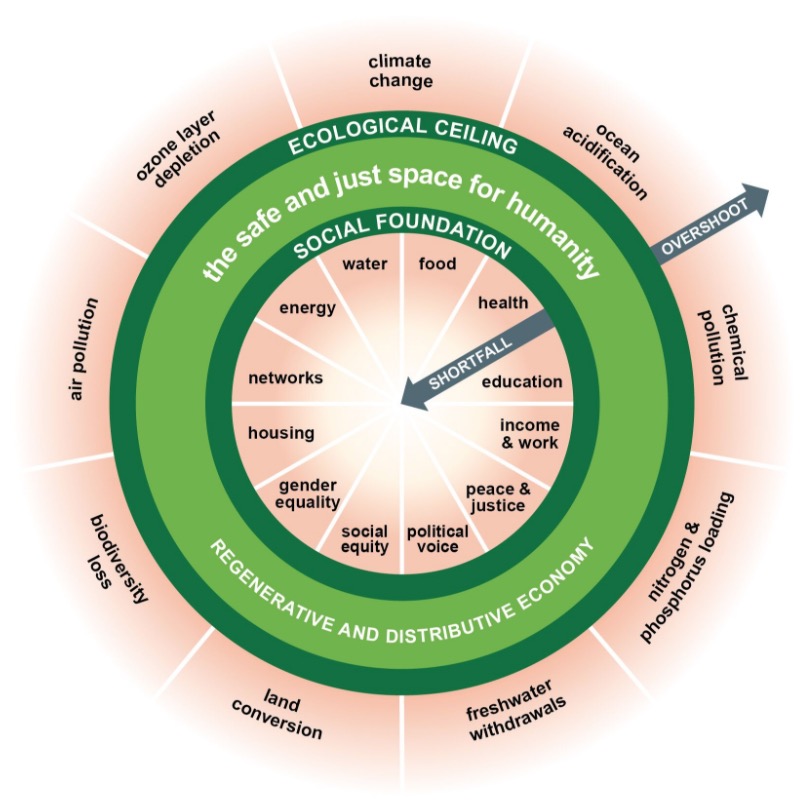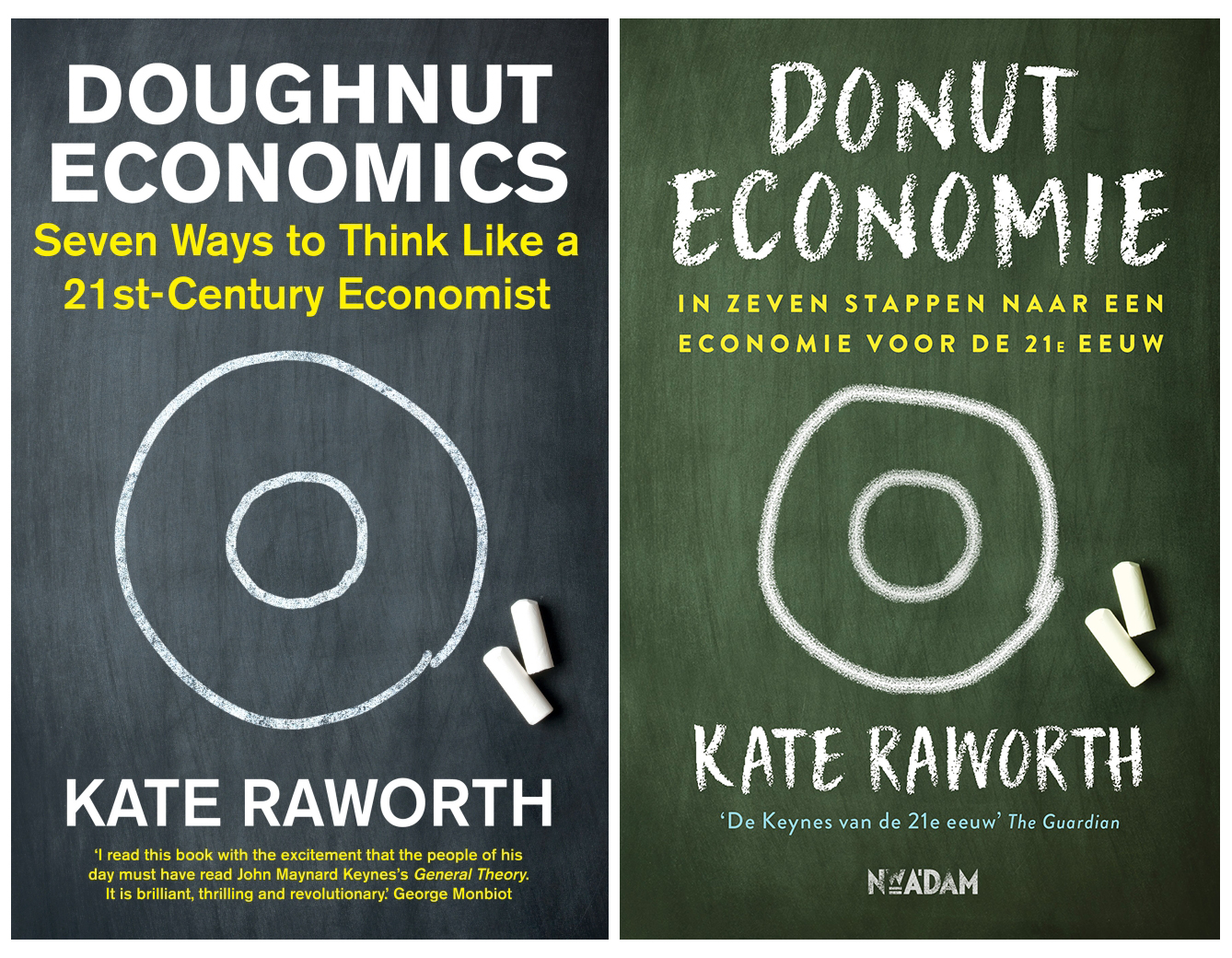The discipline of economics as we know it will neither preserve the Earth’s carrying capacity nor save human civilization. Kate Raworth’s book ‘Doughnut economics’ challenges 21th century economists to do better – to design institutions and economies that are just and sustainable. It offers economists a moral compass and non-economists an interesting alternative perspective.
Since Milton Friedman’s 1953 essays many economists have styled themselves as objective, apolitical scientists. However, their influence in the political arena indicates otherwise. In fact, the challenges facing humanity demand that economists step away from such an objective stance and take responsibility for their political influence. Economists need professional ethics, just like physicians. They need a moral compass as guide and they need to take responsibility for the values and biases reflected in their theories. Economics needs to understand itself as a normative discipline.
Ethics and a compass is what Kate Raworth provides in her new book ‘Doughnut economics’. The main value currently guiding economists – even though they pretend not to have one – is that economic growth is good. Raworth states that we should not assume the need for growth and instead focus on social and ecological sustainability: “We have an economy that needs to grow, whether or not it makes us thrive. We need an economy that makes us thrive, whether or not it grows”.
Rather than economic growth, Raworth targets ‘staying within the doughnut’. The doughnut shaped graph that is at the core of her theory depicts the social and ecological limits of economic growth as concentric circles. These limits are derived from scientific data and from the Sustainable Development Goals agreed at the United Nations. In order for human society to stay within the ‘safe and sweet space’ between the concentric circles, 21th century economists must design institutions and economies that distribute wealth and regenerate ecosystems.

Raworth’s book is rooted in ‘Rethinking Economics’, a movement among students of economics that is critical of dominant economic models and metaphors. Economics, as taught in schools and universities, is extremely influential. In a sense, economists construct social reality as we experience it. Their metaphors and models provide the ‘lens’ through which we look and the examples to imitate in our behaviour. Mainstream economics as taught broadly assumes rationality and selfishness. Adam Smith’s ‘invisible hand’ metaphor is used to promote the ‘market mechanism’ and to justify limiting the role of government. However, the political framing of an ideal government as a prudential ‘housekeeper’ limits its role in designing and building just economies that regenerate nature.
Raworth shows that economic metaphors and models derive their strength from the simplicity of the images and graphs through which they are visualized and from being linked to the successes of the age in which they are introduced. Examples are the crossing lines of ‘supply’ and ‘demand’, which depict a ‘market mechanism’ comparable to the mechanisms studied by natural sciences. And the flow charts that depict ‘production’ and ‘consumption’, etc. mirror those of engineering. Economic metaphors and models have become widespread through education and their application in the political arena. Being propagated in this way has made them extremely ‘performative’, or, in other words, extremely effective influencers of society. Hence, any alternative to existing economic models must be equally performative if it is to be viable.
Raworth is having considerable success with her book. She has presented her work at the headquarters of the OECD, World Bank and UNDP, at last year’s World Economic Forum in China, and in many other places. Her theory is also receiving attention and awards in academic, business and financial circles. The book will be published in many languages. But will it inspire a movement that changes society? The book describes alternative practices that work on a small scale, but there is no strategy for large scale implementation. Raworth may be a charismatic person and an inspiring speaker, but that is probably not sufficient to ‘make the doughnut fly’ or even soar.

For an economic framework to be performative one successful book is not enough. Performativity requires that metaphors and models ´feed´ and are sustained by institutions. Sizable and/or influential segments of the population must feel a need for them. And they must outperform other competing metaphors and models – not by being ‘true’ in the usual sense, but by becoming true because they work. A performative set of economic metaphors and models is built by many authors/economists and becomes ‘true’ when people behave accordingly. A good design is not enough.
So what additional institutions do we need to make the doughnut ‘fly’? We need institutions that connect our ecological, political and social concerns and knowledge. They must embody sustainability, global rule of law and distributive justice. The Dutch Knowledge Platforms for Global Development, which connect science and policy, could set an example. Their external review report, ‘Gold standard’, describes how knowledge platforms can feed and evaluate policies and practices. However, a knowledge platform for sustainability is sorely missing. It must operate on a global scale, and not be shackled to the needs and interests of a particular government. The Broker will gladly contribute!
